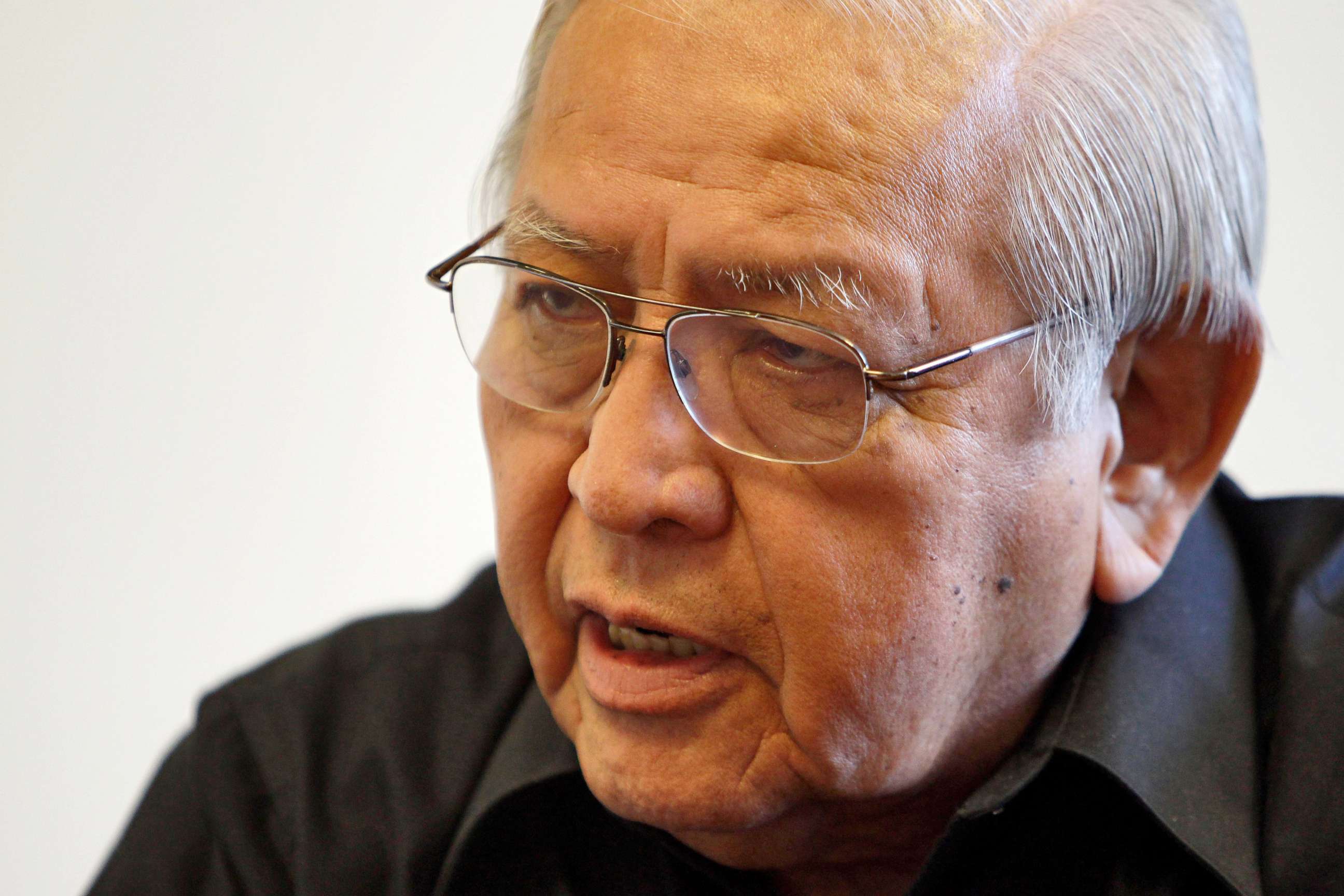First Navajo Nation President Peterson Zah dies at 85
Zah had been ill for some time, according to his family.
Former Navajo Nation President Peterson Zah, who made his mark on Native American education at his reservation and Arizona State University, has died at the age of 85.
Zah was the first elected president in 1990 on the nation's largest tribal reservation, the Navajo Nation, and had been ill for some time, according to his family. Zah died Tuesday at the Tséhootsooí Medical Center in Fort Defiance, Arizona.
"The Navajo Nation lost one of its iconic leaders last night, Dr. Peterson Zah," Navajo Nation President Buu Nygren said in a joint statement by the Navajo Nation Office of the President and Vice President and Navajo Nation Office of the Speaker. "He was the first president of the Navajo Nation, and he was a good champion even in Washington, D.C., in the 90s and the 80s."

The late leader was born in December 1937 in Low Mountain, a section of the reservation, and attended Phoenix Indian School, a boarding school. He later went to community college and on a basketball scholarship, attended Arizona State University with a major in education where he later returned. He worked as the special adviser to the university's president on American Indian Affairs for 15 years.
Zah also served as the chairman of the Navajo Nation from 1983 to 1987 before becoming the president from 1991 to 1995.
During his time as chairman, he established the Navajo Nation's Permanent Trust Fund in 1985 after winning a court battle with Kerr McGee. The court case established the tribe's authority to tax companies who extracted minerals from the reservation leading to all coal, pipeline, oil, and gas leases being negotiated with increased payment.

He was the 2008 recipient of the Martin Luther King, Jr. Servant Leadership Award and received an honorary doctoral degree from Arizona State University, Colorado College and The College of Santa Fe. Although Zah never held an elected position before being chairman, he exemplified what leadership meant, according to those who were guided by him.
"Shida'í, Mr. Zah, molded our people to think as a nation, and, despite his age and health, he never quit in his mission to see us become who we ought to," Carl Roeseel Slator, Navajo Nation council delegate, said in a statement. "We are stronger because of his leadership, compassion, intelligence, and gift for elevating the ordinary deliberations of our society into echoes of our future."
There will be a private burial Saturday morning for Zah, the Associated Press reported, and a community reception following the service out of Window Rock.




